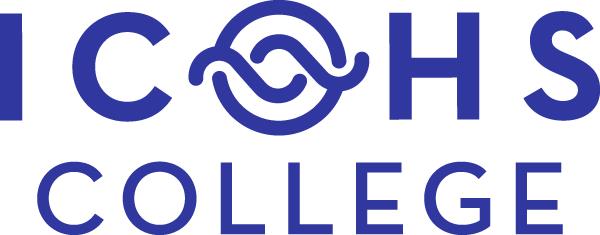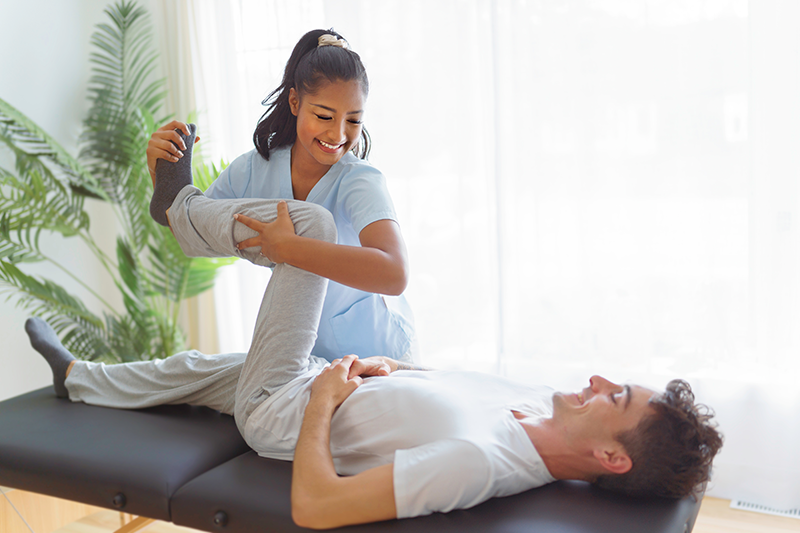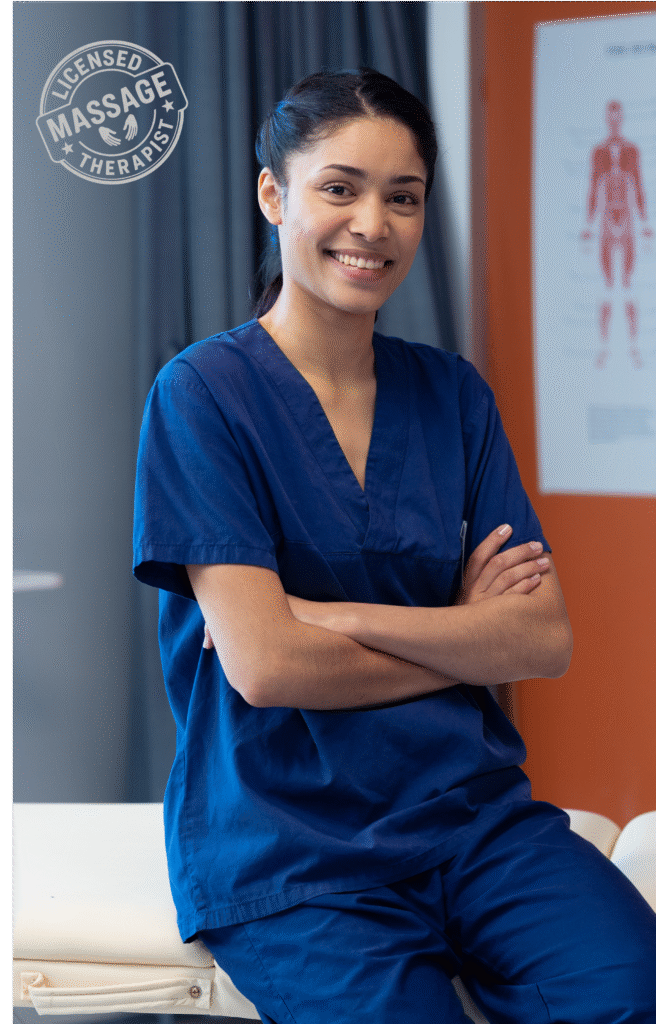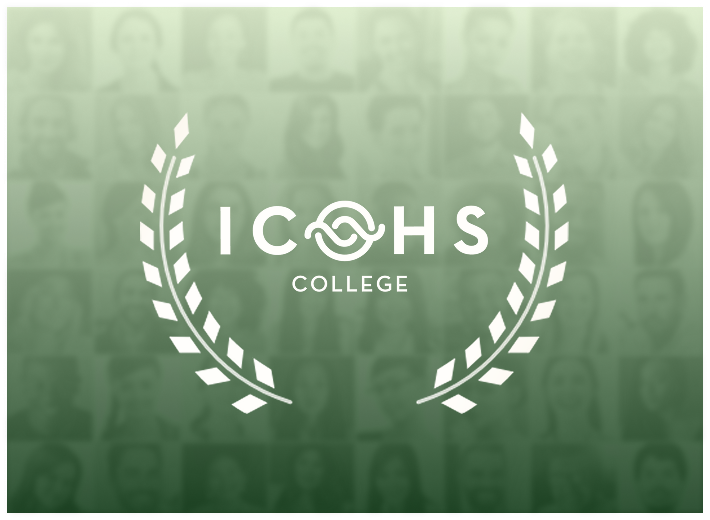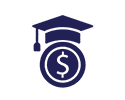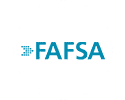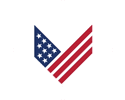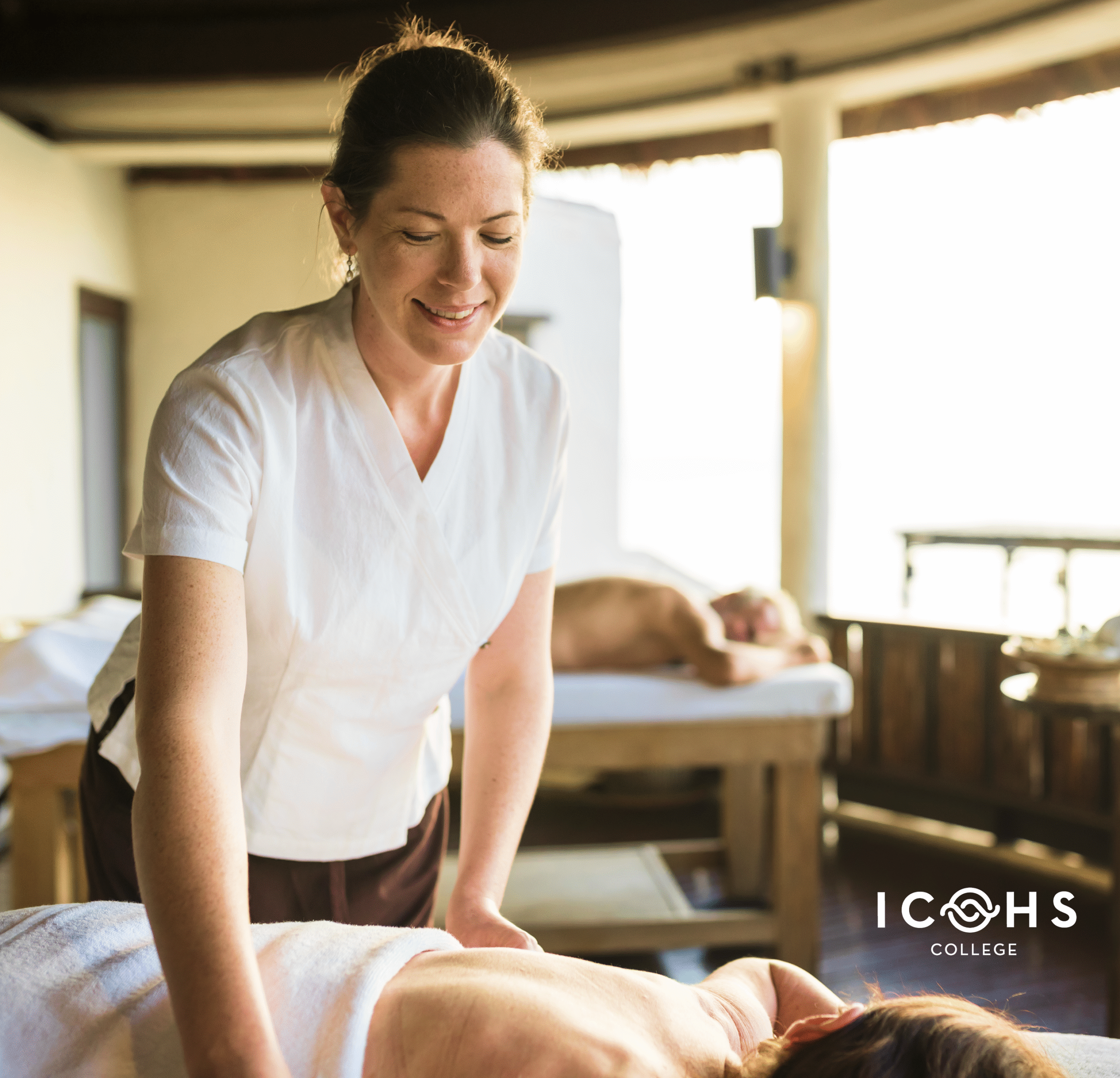Program Information
The Associate Degree in Integrative Health at ICOHS College blends clinical hands-on learning with science, wellness, and business training. You’ll learn:
- Eastern & Western Massage Modalities
- Integrative Nutrition & Wellness Coaching
- Movement Science & Fitness Foundations
- Communication, Ethics & Leadership
- AI Applications in Wellness & Business Intelligence
- Marketing & Entrepreneurship Skills
Program Length: ~105 weeks
Delivery Options: Hybrid (Online + In-Person) or Fully Online
Credential Awarded: Associate of Science in Integrative Health
Certifications Earned: 5 Industry-Recognized Wellness Certifications
Tech & Tools: Canvas, Elsevier, VitalSource, Books of Discovery
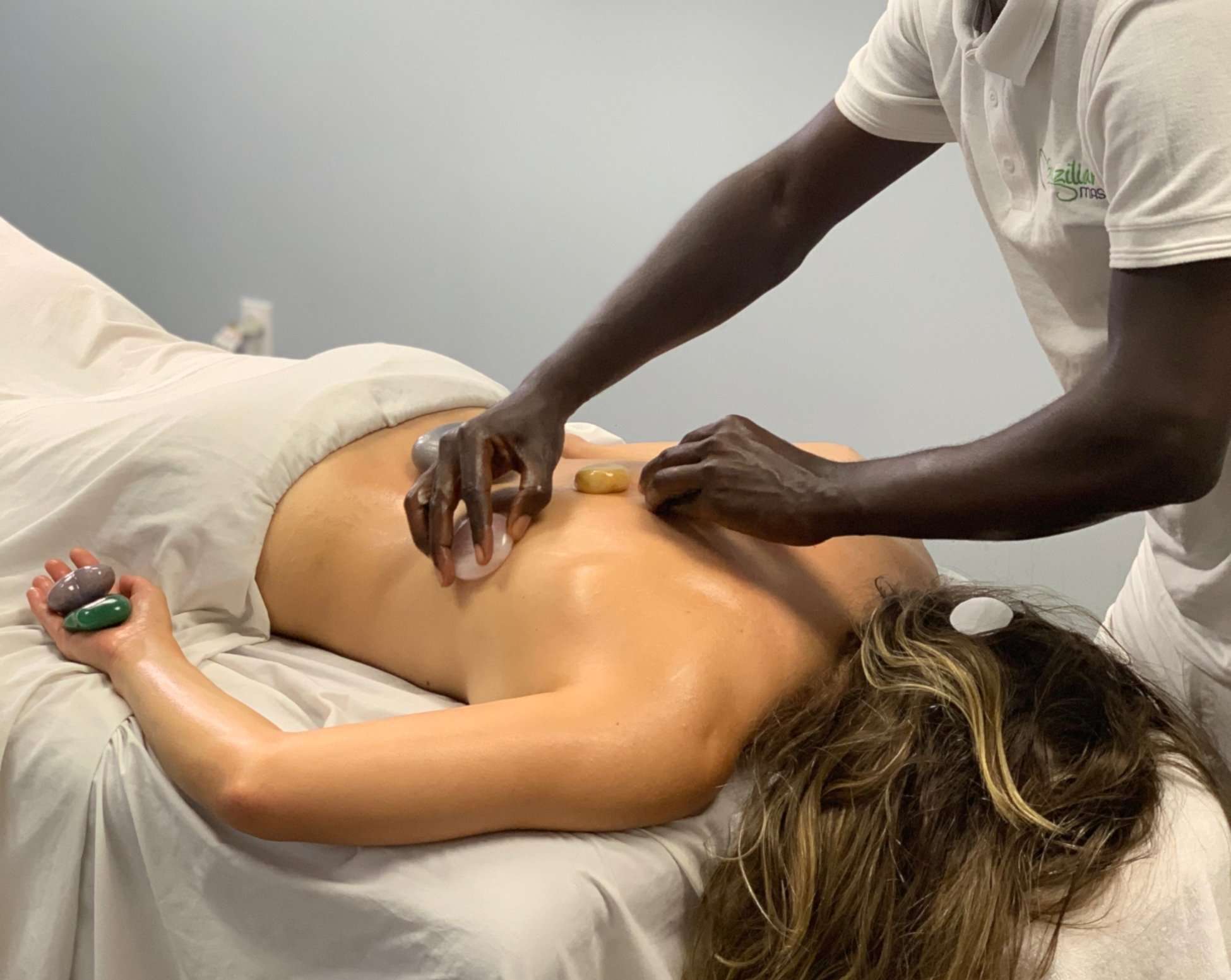
Students will learn and master techniques for a full-body Swedish massage. Best practices are introduced in proper body mechanics, therapist self-care, session management, contraindications, and draping methods. Additional components include: the history of massage, indications and contraindications of massage, the use of oil and creams, the art of presence, grounding, and centering.
Massage terms, directional terms, and medical terminology will also be covered to facilitate professional communication. The course introduces students to safety and sanitation procedures required for client interactions, documentation skills and SOAP charting.
In addition to classroom experience, students are encouraged to engage in practice massage sessions outside of scheduled lab hours.
Students undertake a detailed exploration of muscular/skeletal anatomy. Detailed study on muscles, bones, and joints of the human body with the use of 3D models, illustration, and dissection videos. Emphasis is placed on palpation and the relationships among muscle attachments, bony landmarks, and prominent joint structures along with regions of the body with an introduction to the integral role of the nervous system.
The onsite labs will deepen students’ muscular skeletal anatomy through the inclusion of tissue palpation, drawing on the body, and comprehensive chair massage training. Advanced complimentary learning is available and includes terminology pronunciations, body awareness and self-care, critical thinking, bodywork tips and techniques, anatomy aids, muscle videos, and case studies.
This course builds on and complements the muscular and skeletal anatomy with a more advanced look into the body’s relationship to kinetic chains.
Using information gathered from the study of kinetic chains, you will explore case studies that include anatomical, joint and skill analysis for movement patterns and activities of daily living. Students further their study of skeletal muscles, their actions, and the roles they play in stability and movement. Students will analyze joint actions and define the different roles of muscles during joint movement.
There is a focus on biomechanics, posture, and gait assessment within a massage therapist’s scope of practice as well as the relationship of receptors and reflexes, and their influence on muscular actions.
Students will analyze joint actions and define the different roles of muscles during joint movement.
Students master enhanced techniques for a full-body massage, building from the knowledge base acquired in Fundamentals of Massage.
This course provides advanced rehabilitative theory and technical skills to work with clients experiencing myofascial pain symptoms of the upper and lower body. Techniques such as Myofascial Release, Trigger Point Therapy and Cupping Therapy will be introduced and practiced with emphasis on developing upon a basic treatment protocol. Students will expand their anatomical knowledge and palpation skills in the context of rehabilitative massage.
This class is an introduction to the techniques, purpose, goals, and effects of sports massage. Also included is plenty of hands-on time for practicing the delivery of sports massage for post-event sessions. Students will also be introduced to other independent modalities or as a complement to other therapies. Documentation skills and SOAP charting skills are refined and practiced. In addition to classroom experience, students are encouraged to engage in practice massage sessions outside of scheduled class hours.
This course introduces students to the organization of the body on a chemical, cellular, tissue and system level. Integrating structures focused on the skeletal/articular, muscular, and nervous systems in detail and explores the endocrine, cardiovascular, lymphatic/immune, integumentary, respiratory, digestive, urinary, and reproductive systems.
This course integrates the theories, principles, and techniques learned across the curriculum, from both a population and a condition perspective. The focus of the class is the critical thinking skills needed to design an individualized treatment plan to meet a client’s specific needs. Students learn and discuss the unique considerations for treating special populations, including older adults, persons with disabilities, terminal illnesses, and women in pregnancy. Special conditions are discussed with emphasis on considerations such as indications, contraindications, techniques, and adaptations.
This course identifies considerations for providing massage safely to people in a variety of ages and stages of life, as well as an understanding of some common pathological conditions seen in practice.
This class is an introduction to Traditional Chinese Medical theory and modalities specific to the field of massage therapy.
Observation and practice of modalities are required during the laboratory experience. A fundamental understanding and practical application of Traditional Chinese Medicine (TCM) theories of Qi, Yin/Yang, 5 elements, meridian location, acupoint locations as applied to massage therapy.
Students will learn and perform eastern bodywork such as Thai Massage and Tui Na to support the health of their clients from an eastern philosophy and integrate these techniques into their massage practice to create positive change in a clients’ condition.
Substantial attention will be paid to practitioner body mechanics and self-care techniques to ensure the practitioners’ continued well-being.
This course contains the skills and tools necessary to compete in today’s job market, develop a career strategy, and reach potential employers.
Students explore self-assessments, complete focused assignments that build upon their massage therapy goals. Students develop a clear and concise resume, cover letter, and practice effective interviewing skills.
Each student will develop an online presence, create marketing material, business planning and learn about client acquisition and retention. Additionally, students can focus on individual career tracks; either private practice; employee or blended career, practice for the MBlex examination and receive support with State certification.
This course explores the therapeutic use of integrative modalities in diverse clinical and wellness environments. Students gain insight into treatment planning, assessment strategies, and the practical application of healing practices that support whole-person care. Emphasis is placed on ethical considerations, scope of practice, and client-centered outcomes.
Students delve deeply into traditional Eastern therapeutic systems such as Shiatsu, Thai Massage, and Tui Na. Through hands-on practice and theoretical exploration, students develop advanced techniques, refine body mechanics, and gain cultural and historical context. The course emphasizes energetics, meridian theory, and patient interaction within an Eastern healing framework.
This course builds on foundational Western massage techniques by introducing advanced applications such as myofascial release, neuromuscular therapy, and deep tissue strategies. Students refine palpation skills, enhance their anatomical understanding, and learn how to adapt protocols for rehabilitation, chronic pain, and athletic performance.
Students explore the relationship between nutrition, lifestyle, and wellness through the lens of integrative health. Emphasis is placed on food as medicine, functional nutrition principles, and dietary strategies that support specific health conditions. Students also examine contemporary debates in nutrition and how to guide clients with evidence-informed recommendations.
This course introduces students to artificial intelligence concepts and their emerging applications in healthcare. Students gain foundational knowledge in machine learning, data analysis, and automation tools that are transforming patient care, diagnostics, and administrative functions. Ethical considerations and future trends are also explored.
Students learn how to collect, analyze, and interpret health-related data to support strategic decisions in healthcare organizations. The course covers data visualization, dashboards, KPIs, and predictive analytics using business intelligence tools. Real-world case studies help students understand how data-driven insights improve operational efficiency and patient outcomes.
This course equips students with contemporary marketing skills for today’s digital landscape. Students develop branding strategies, learn to create compelling content, and explore tools like SEO, social media, email campaigns, and analytics. Emphasis is placed on ethical marketing and audience engagement across diverse platforms.
This course focuses on cultivating effective leadership through self-awareness, communication, and emotional intelligence. Students explore coaching models, team dynamics, and motivational strategies that support both personal growth and organizational impact. Practical exercises enhance students’ ability to lead with empathy, resilience, and clarity.
In this immersive practicum, students apply holistic coaching techniques with real clients or in supervised simulations. Emphasis is placed on rapport-building, active listening, goal setting, and ethical practice. Students receive constructive feedback and build confidence in delivering transformative coaching experiences grounded in integrative principles.
This course develops students’ ability to analyze, evaluate, and synthesize information through a logical and reflective lens. Students practice argument construction, bias recognition, and problem-solving strategies that support informed decision-making across academic and professional contexts.
Students learn essential verbal and written communication skills for today’s professional environment. Topics include audience analysis, professional writing, public speaking, digital communication, and interpersonal dynamics. Emphasis is placed on clarity, tone, and ethical communication in both individual and team settings.
This course covers foundational mathematical principles used in business, including percentages, interest calculations, financial ratios, and data interpretation. Students apply these skills to real-world business scenarios such as budgeting, payroll, and inventory control, building confidence in financial decision-making.
Students are introduced to core business concepts including entrepreneurship, marketing, finance, operations, and management. Through case studies and interactive projects, students explore how businesses operate in a global, digital, and ethical context, laying the groundwork for future business courses.
This final capstone project allows students to synthesize and apply knowledge gained throughout their program. Students design and present an integrative practice plan, combining clinical skills, business strategy, and wellness philosophy. The course emphasizes professional readiness, innovation, and reflection on personal growth.
Aspiring Wellness Professionals: Individuals passionate about helping others through holistic, preventive care — from massage therapy to fitness, nutrition, and coaching.
Holistic Health Explorers: Those drawn to both Eastern and Western health philosophies who want to integrate body, mind, and lifestyle practices into their career.
Career Changers: People looking to pivot into a meaningful, wellness-centered profession with multiple pathways — whether in coaching, bodywork, or personal training.
Health Advocates & Coaches: Those who want to empower others through wellness education, behavior change, and supportive care in diverse environments.
Flexible Learners: With hybrid and online formats, the program is ideal for those balancing school with work, family, or other life commitments.
Growth-Oriented Students: Individuals seeking not just a job, but a purpose — who want a supportive, holistic learning environment that fosters both personal and professional transformation.
By enrolling in the ICOHS College Professional Massage Therapy program, students will not only gain the knowledge and skills needed for a successful career but will also become part of a community that values a holistic approach to health and wellness.
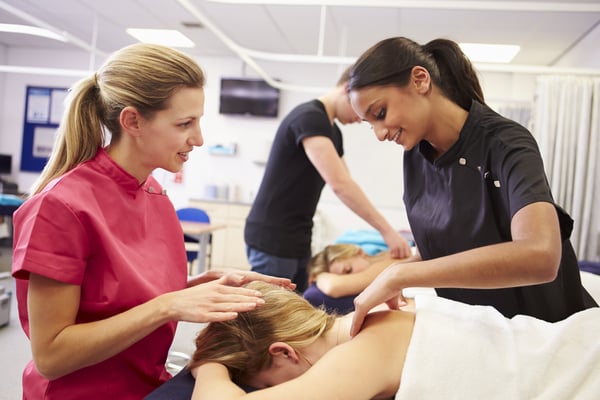
- Laptop
- Massage table
- Full round bolster (6″ diameter)
- Double Massage Holster Kit (2 holster, 2 lotion btls, 2 oil btls) (oil $5 ea, lotion $5 ea, holster $5 ea )
- NRG® Deluxe Flannel Massage Table Sheet Set (student receive 2 sets)
- ICOHS Tote Bags
- ICOHS College Branded Scrubs
- ELERA Silicone Cupping Therapy Sets (WMM 101)
- AMBP School Membership Premier Plus
- Musculoskeletal Coloring Book (SCI 101)
- Fingerprint Live Scan
- CAMTC Fee
